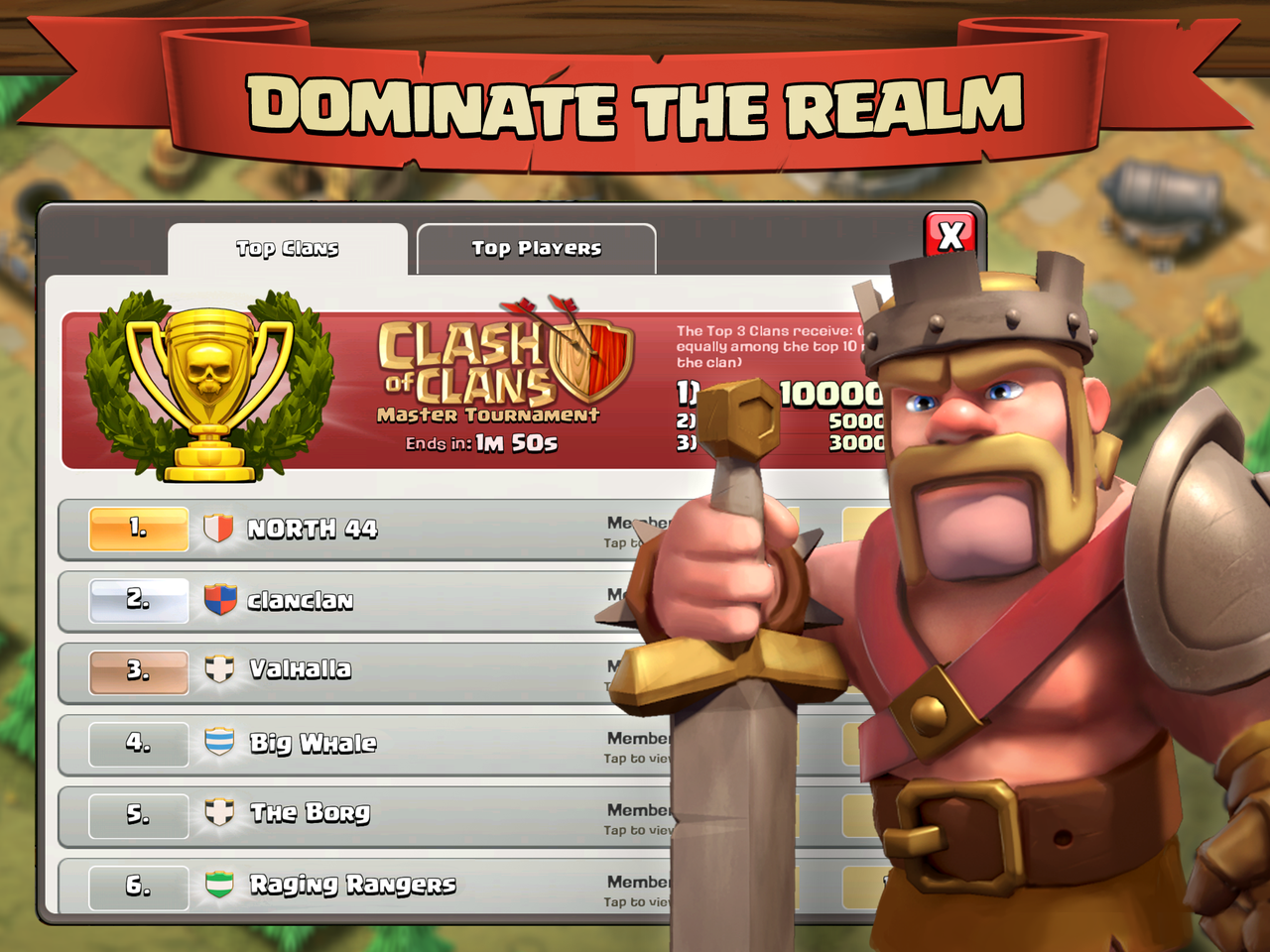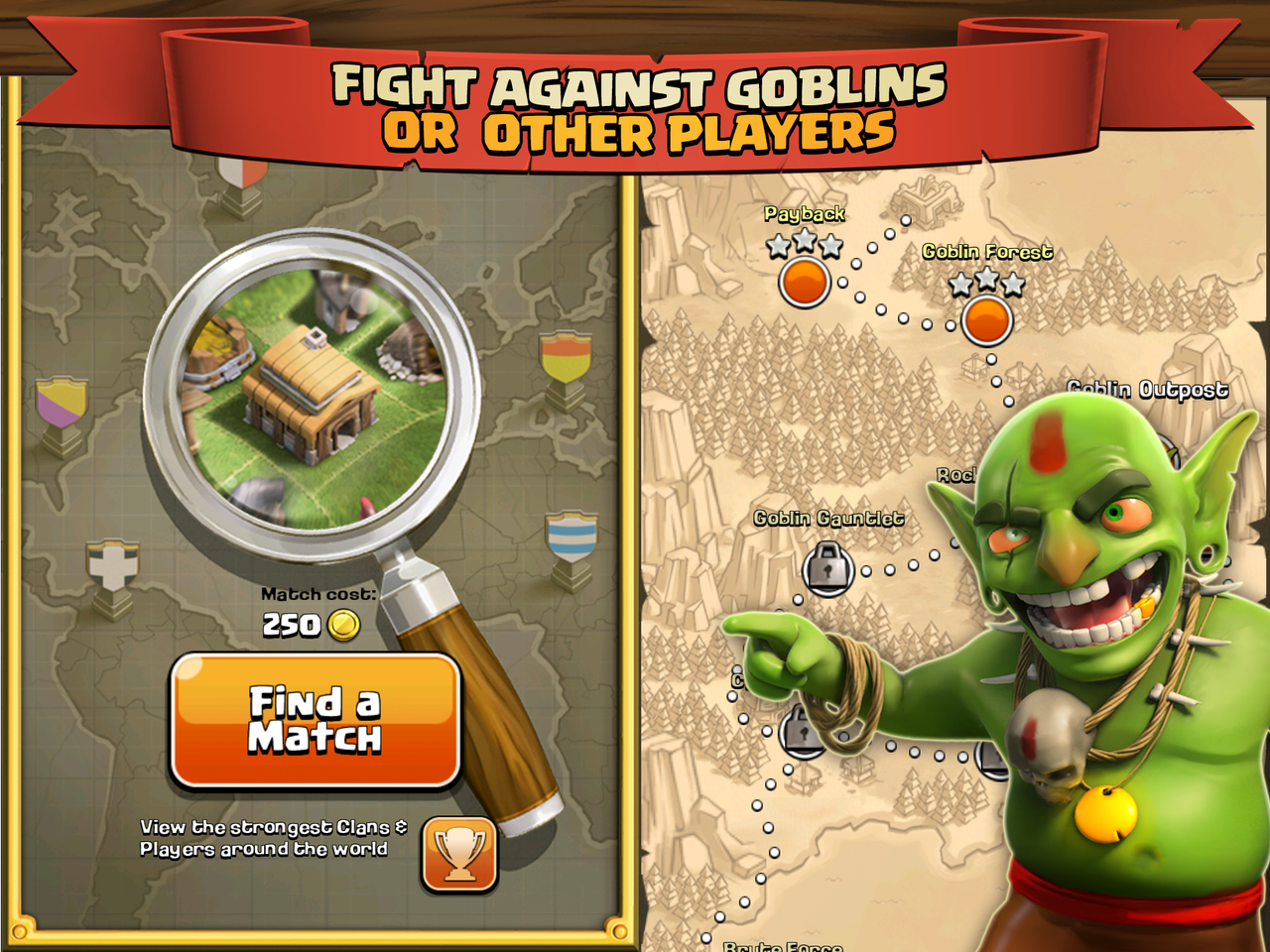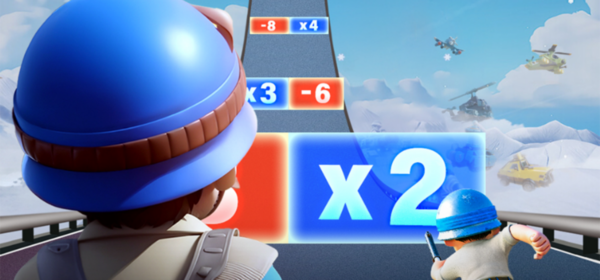Interview with Supercell: "We don't use the word midcore"
Two Supercell games earn more in a month on the App Store than a thousand mobile games from Electronic Arts. This is well-known, so with the Finnish developers, we talked about different things: inspiration, promotion, and the future of the market.
The first Supercell projects were hardcore games (Gunshine, Battle Buddies). Why did you decide to change course and focus on mid-core games?
In fact, we don’t use the word “mid-core”; we view our games somewhat differently. We know they have qualities that appeal to a wide range of people, both young and old, gamers and those who usually don't play. This was true of Gunshine, a project for Facebook and browsers, as well as Battle Buddies, which was developed for tablets.
This applies to our current games as well. For example, the visual style of Clash of Clans is more appealing to casual players. The social elements in it can retain those players who do not want to delve deeply into the "competitive" part of the game. But Clash of Clans also has a variety of features aimed at hardcore players (strategic battles, leaderboards, upgrades). We've even witnessed the emergence of a whole ecosystem of fan-made applications and podcasts created specifically for those who want to know how to succeed in the game.

Clash of Clans and Hay Day are seen as examples of game design by many developers today. What did you rely on during their development, and what inspired you?
Inspiration comes from everything around us. The Clash of Clans team is a fan of Pixar, admiring how their animators manage to create characters that appeal to both kids and adults. They are also big fans of Capcom, amazed by how carefully their characters are drawn. The team also drew inspiration from games like Travian, Backyard Monsters, and Gauntlet.
The division responsible for Hay Day was influenced by Farmerama.
Lasse Louhento, the main person on this project, says that the very process of game development inspires him. For Lasse, a whole new world opens up when he sees the first game object on the screen.
At the same time, Lasse mentions that there is no single source of inspiration; game development is a team effort where everyone is inspired by something.
Supercell released two very successful and entirely different mobile projects in a row. What is the secret to your success?
Success means creating a great game where users want to spend their time. To create such projects, we believe it's necessary to develop with passion and love for games. We maintain this passion by dividing the company into small teams. Our structure is like a combination of small cells, and together we make up Supercell.
For instance, at the launch of Clash of Clans, its team consisted of only five people. We've discovered that when people work in small teams, each employee becomes more responsible for what they do. This allows us to focus on quality rather than quantity. Thanks to all this, we create games that we love ourselves.

Did you expect such success?
None of us could have imagined that Clash of Clans would become such a popular game. Every day we are met with awe and a sense of pride because our players continue to react positively to the game and recommend it to their friends.
How did you promote the game? How did you increase its visibility on the App Store? Did you spend a lot on marketing?
The main “engine” for promotion was the players themselves. Thanks to fans inviting their friends to play Clash of Clans, it became popular.
From the early days of the “soft” launch in Canada, fans independently, without any participation from Supercell, began organizing various events to attract the gaming audience, including holding contests with real prizes.
To date, fans of the game have even created their own applications where other players can share images of their villages and vote for them, and there are even regular fan programs about the game on YouTube.
We work with some advertising networks, but they don't contribute much.
We invest as many resources as we can into making our games even better, to please our fans because we believe that the best way to achieve virality is to create a great game that players love and want to bring their friends into.

Everyone is talking about mid-core now, and Supercell was one of the companies that popularized this genre. Do you think such games ensure the future of the mobile industry? What games will be popular this year?
As we said, we don’t think of our games as “mid-core”; we believe they just appeal to the widest audience. As for the future, it is difficult to predict anything because so much changes in the industry even in one year.
One of our main beliefs is that tablets are the primary gaming platform. Especially with the recent launch of the iPad mini, we expect even more explosive growth in the "tablet" market and games for them.
We also expect that their quality will seriously improve, which applies to those games aimed at hardcore players. For our part, we will do our utmost to ensure that our projects are played for a very long time.
What are your plans? Are you planning to continue working on existing titles or develop something entirely new?
First and foremost, our users are important to us. We are very grateful to them for the success of Clash of Clans and Hay Day. For their sake, we continue to support our existing titles.
And of course, we will continue to follow our passion for making great games and have already started working on new titles.

Are you planning to translate Clash of Clans and Hay Day into Russian?
Clash of Clans is likely to be localized into Russian in the very near future. The appearance of a Russian version of Hay Day is also possible. We want our projects to be enjoyed by as many people around the world as possible.
Currently, our efforts are focused on localization in the Far Eastern markets. When we have Russian versions of Clash of Clans and Hay Day ready, you'll be among the first to know.
Are you looking for new people?
We are always looking for talented individuals, team players who prefer to work in a small team and who feel that games and Supercell's culture might suit them.
Questions were answered by Heini Vesander, head of the PR department at Supercell
